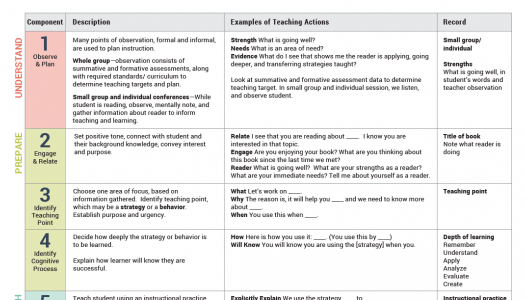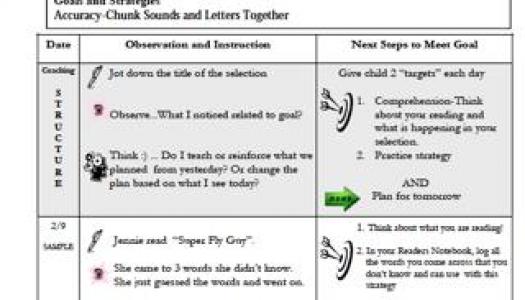Conferring When We Haven't Read the Book
Join Our Community
Access this resource now. Get up to three resources every month for free.
Choose from thousands of articles, lessons, guides, videos, and printables.
 I used to think I needed to have read the book a student was reading to have a meaningful and focused conference. Even though I am a voracious consumer of children’s literature, this isn’t always possible. I’ve come to realize that conferring with students differs from book club conversations, so even though it would be nice to have read the book, it isn’t always necessary.
I used to think I needed to have read the book a student was reading to have a meaningful and focused conference. Even though I am a voracious consumer of children’s literature, this isn’t always possible. I’ve come to realize that conferring with students differs from book club conversations, so even though it would be nice to have read the book, it isn’t always necessary.
What I am after when I meet with a child is how they are progressing on their personalized goals of comprehension, accuracy, fluency, and vocabulary. This can be determined whether I’ve read the book or not. First, I take a brief moment to prepare for the conference by reviewing previous one-on-one sessions in my Conferring Notebook (online or physical). After sitting next to a student, I say, “Tell me what’s happening in your book.” The answer to this question gives me an initial sense of their comprehension.
Then I say, “I’d love to hear a little of it. Please read a bit to me, starting right where you are.” Now I can listen in to see if the student is applying the strategy we have been working on, and it helps me decide where I need to take my teaching during this conference.
Thoughtful questions can prompt a student of any age to think more deeply. I don’t have to have had personal experience with the text to ask a question like one of the following:
Fiction
- Is this book fiction or nonfiction? How do you know?
- How is the character feeling, and how does the author’s writing let you know?
- Is this a good setting for the story? How would another setting have changed things?
- What has the author done that you would like to try in your own writing?
- What do you think is going to happen? What makes you think that?
- What are you wondering about?
Nonfiction
- Is this book fiction or nonfiction? How do you know?
- What has the author done that you would like to try in your own writing?
- What are you wondering about?
- What do you think the author’s purpose is?
If I feel the need to know a little more about the book, I might read the blurb on the back or look at the table of contents.
Like anything else, conferring becomes more comfortable as we practice. Whereas my mind used to race as I wondered what I should say next, conferring sessions have now become comfortable conversations where sticking points are worked through, guided and directed instruction takes place, and growth is celebrated whether I’ve read the book or not.
Want to have these questions nearby when you are conferring? Slip the download into your conferring notebook or on a clipboard for easy access.







